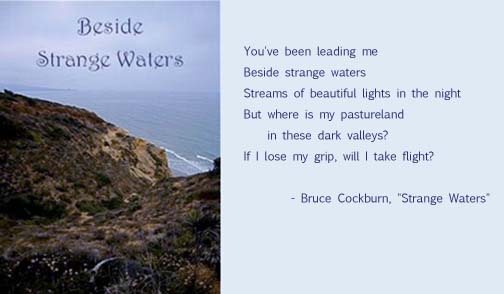Academics, like other people, start with a personality that is afflicted by ignorance and prejudice, and try to escape from that personality, in [T.S.] Eliot's phrase, through absorption in impersonal scholarship. One emerges on the other side of this realizing once again that all knowledge is personal knowledge, but with some hope that the person may have been, to whatever degree, transformed in the meantime" (The Great Code, xv).
It's interesting to me that Frye describes scholarship almost as a descent into the underworld, in the hero's journey. In some ways it is a journey to the realm of the dead, because the disciplines of the humanities are our only time machine. Through art, literature, music, philosophy, history and religion, we can engage the thoughts and emotions of people from the past, and reach out to people from our future.
Does scholarship truly take place in Hades? During finals week, most college students would probably agree. The semester that I had 12 units of 400-level literature classes definitely felt like a trip to Hell. But I did emerge with heightened knowledge, and a real awareness of how the novel has evolved over time.
Was I transformed by my experiences at the university? I believe that I was. Through reading poetry, I learned to value diversity. Elizabethan revenge tragedy taught me that creativity can flourish with few props and even under conditions of censorship. Attempting to write fiction for actual readers brought me humility. Encountering living authors and scholars opened up a new world of thought and experience for me. I realized that one can actually live the life of the heart and the mind.
If I master the eschatalogical defeat of death through scholarship on my hero's journey, I'll definitely let you know.

No comments:
Post a Comment